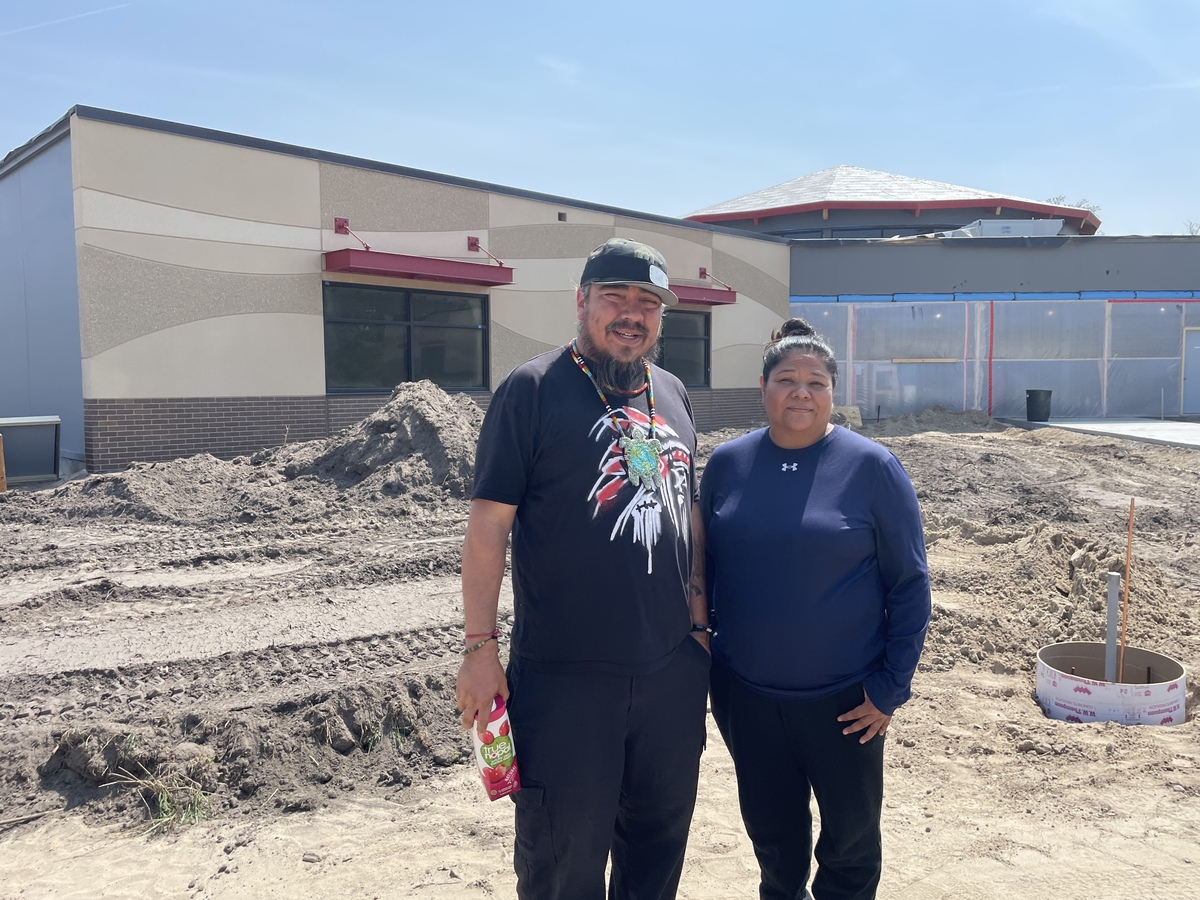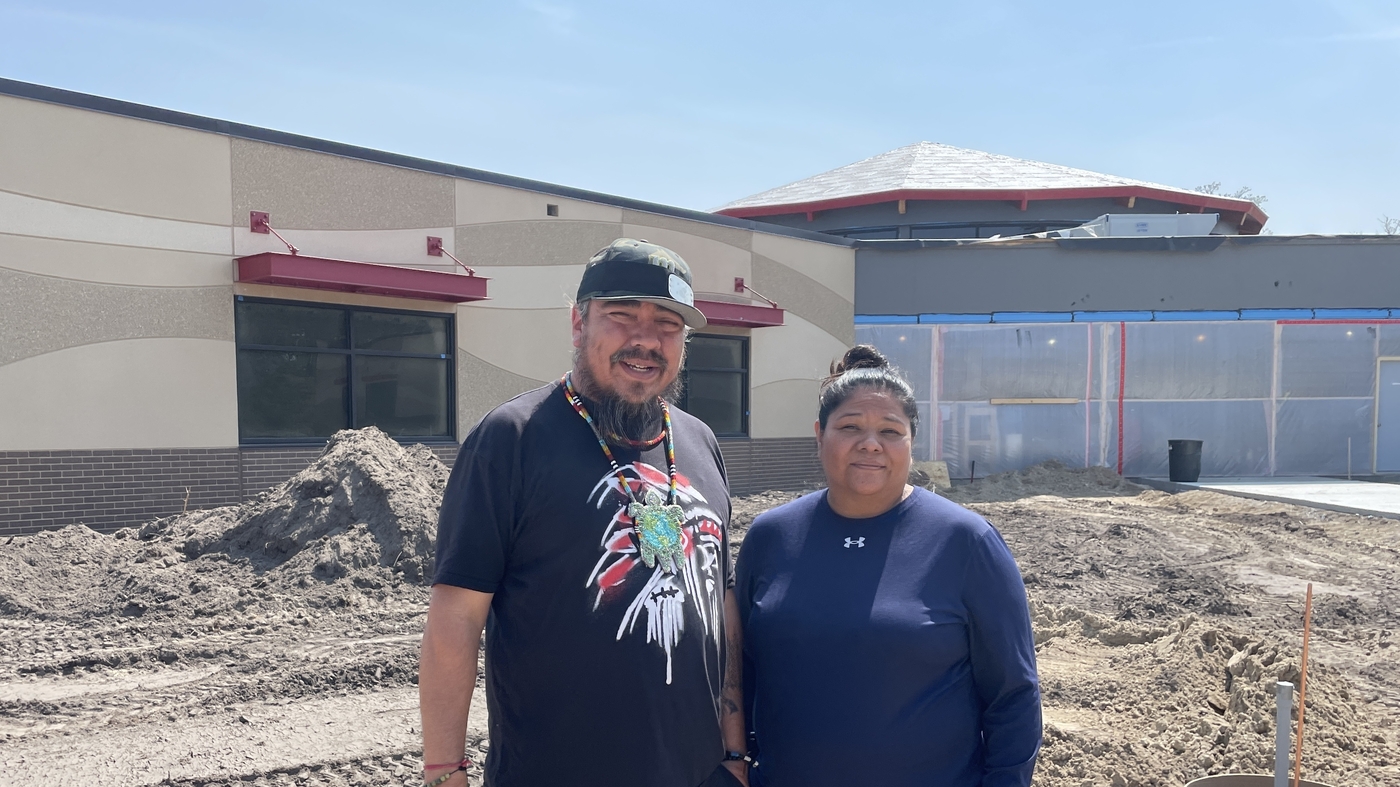[ad_1]

Nate Taylor (left) and Sylvia Fred (right), two of the co-founders of the Endazhi-Nitaawiging Charter School on Red Lake Reservation standing in front of the construction site for a new school building.
Sequoia Carrillo /NPR
hide caption
toggle caption
Sequoia Carrillo /NPR

Nate Taylor (left) and Sylvia Fred (right), two of the co-founders of the Endazhi-Nitaawiging Charter School on Red Lake Reservation standing in front of the construction site for a new school building.
Sequoia Carrillo /NPR
This week, we’re bringing you an episode about land, power, and history from our friends at NPR’s Throughline podcast, and our play cousin Sequoia Carrillo. The word “reservation” implies “reserved” – as in, this land is reserved for Native Americans. But most reservation land actually isn’t owned by tribes. Instead it’s checkerboarded into private farmland, federal forests, summer camps, even resorts. That’s true for the Leech Lake Band of Ojibwe in northern Minnesota, where the tribe owns just a tiny fraction of its reservation land. But just northwest of Leech Lake is Red Lake: one of the only reservations in the country where the tribe owns all of its land.
So what happened? In this episode, Sequoia takes us on a road trip through Leech Lake and Red Lake to tell a tale of two tribal nations, the moments of choice that led them down very different paths, and what the future looks like from where they are now.
The Code Switch update to this episode was produced by Xavier Lopez.
[ad_2]
